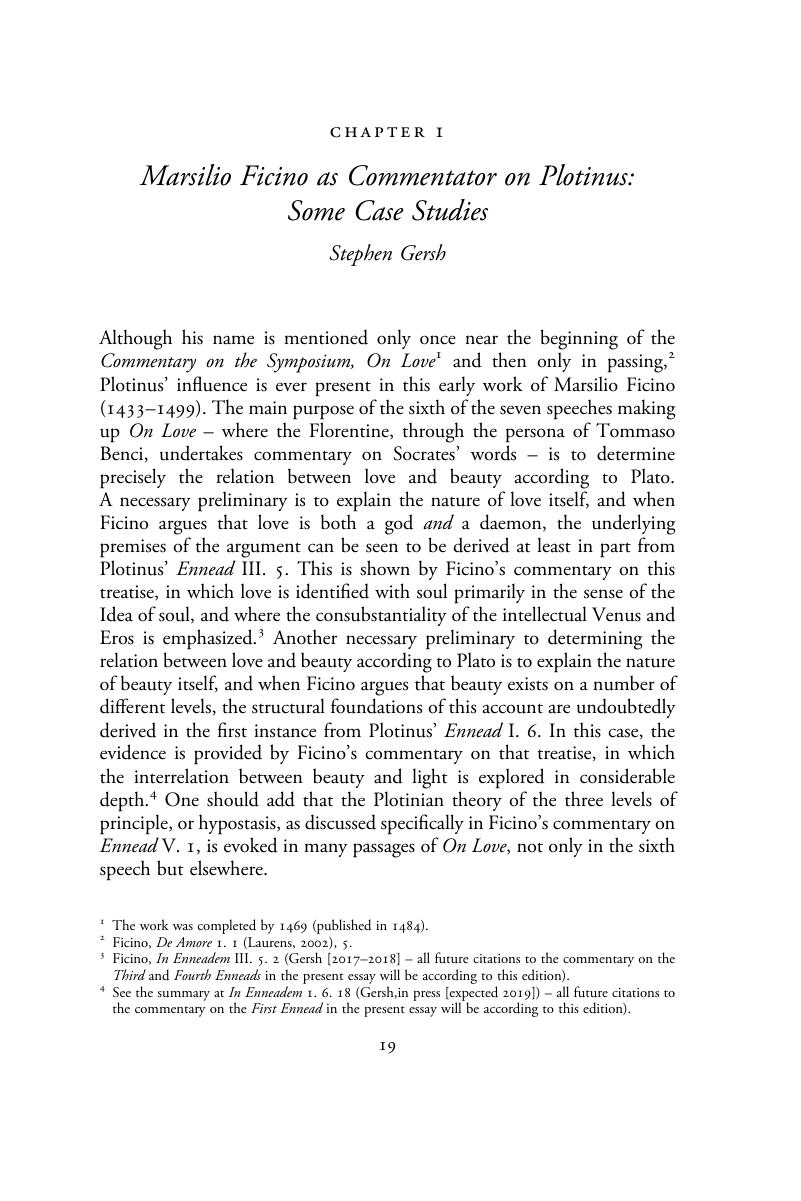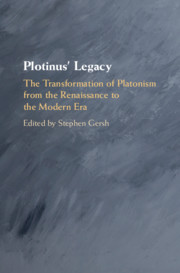Book contents
- Plotinus’ Legacy
- Plotinus’ Legacy
- Copyright page
- Contents
- Contributors
- Introduction
- Part I The Italian Renaissance
- Chapter 1 Marsilio Ficino as Commentator on Plotinus: Some Case Studies
- Chapter 2 Giovanni Pico della Mirandola on Virtue, Happiness, and Magic
- Part II Sixteenth-Century France
- Part III The “Cambridge Platonists”
- Part IV German Romanticism
- Part V The Twentieth and Twenty-First Centuries
- Appendix: Chronology of Editions and Translations of Plotinus1
- Index
- References
Chapter 1 - Marsilio Ficino as Commentator on Plotinus: Some Case Studies
from Part I - The Italian Renaissance
Published online by Cambridge University Press: 05 April 2019
- Plotinus’ Legacy
- Plotinus’ Legacy
- Copyright page
- Contents
- Contributors
- Introduction
- Part I The Italian Renaissance
- Chapter 1 Marsilio Ficino as Commentator on Plotinus: Some Case Studies
- Chapter 2 Giovanni Pico della Mirandola on Virtue, Happiness, and Magic
- Part II Sixteenth-Century France
- Part III The “Cambridge Platonists”
- Part IV German Romanticism
- Part V The Twentieth and Twenty-First Centuries
- Appendix: Chronology of Editions and Translations of Plotinus1
- Index
- References
Summary

- Type
- Chapter
- Information
- Plotinus' LegacyThe Transformation of Platonism from the Renaissance to the Modern Era, pp. 19 - 43Publisher: Cambridge University PressPrint publication year: 2019
References
- 2
- Cited by

